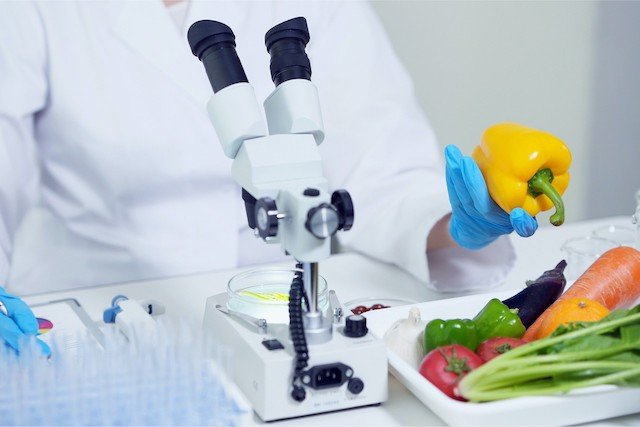2020, the year of foodtech. The sector, which can be defined as the alliance between new technologies and the food and restaurant sector, raised €2.7bn at European level in 2020, according to a report by DigitalFoodLab, a specialised agency in this domain. This is the same level as 2019. Last year, however, Europe only represented 12% of global foodtech investments. The European leader remains the UK, but France, the Netherlands, the Nordic countries and the Germany-Austria-Switzerland zone follow. These five territories represent 94% of investments in European foodtech in 2020.
For DigitalFoodLab, foodtech includes six main categories: "agtech", start-ups that invent the agriculture of the future by improving the quality and yield of tomorrow's agricultural productions, such as insect breeding; delivery, specialists in food delivery, shopping or meals such as Deliveroo or HelloFresh; “Foodscience”, companies that invent new food products; “Foodservice”, startups that improve the management of catering companies, coaching around eating well; and “retail”, everything related to food distribution.
Although in 2019, 59% of investments were in delivery, this share fell to 21% this year. Agtech came first in 2020, with 33% of investments. Investments in alternative protein startups, such as cellular agriculture or plant-based foods, increased by 178% in 2020.
Plentiful supply of capital, consumer demand
This boom is due to the conjunction of two underlying trends: an abundant supply of capital on one hand, which supports innovation and the bringing to market of new products, and a change in consumer behaviour on the other hand, triggered by environmental concerns such as carbon footprint and greenhouse gas emissions, animal welfare and human health. It’s enough to provide prospects for growth and solid returns.
Such trends have only been amplified by the pandemic, according to Mayssa Al Midani, senior investment manager in charge of the Pictet Nutrition fund and nutrition strategy at Pictet AM.
“Covid-19 has precipitated two strong trends for the agrifood industry: first, producers must rethink their supply chains after the disruption of global trade due to the pandemic, in a context where complex international networks of supply and distribution are under pressure and under scrutiny,” Al Midani says.
“Containment measures and border closures have indeed disrupted the distribution of agricultural products and led to labour shortages in food processing factories. Next, the industry must now meet the needs of a more demanding clientele, less concerned with convenience than with the nutritional and ethical aspects of the products they buy and consume. To respond to this trend, the food industry is investing heavily in a wide range of high-tech solutions. Many of these solutions focus on consolidating supply chains, tightening production standards and reducing food waste.”
Al Midani believes it’s in the meat industry where pandemic-induced transformations are most apparent.
Example of the meat market
Let’s take the example of meat to illustrate the revolution that will sweep through the agrifood sector. Following the emergence of virus clusters in slaughterhouses during the pandemic, meat production lost nearly 40% compared to 2019. It required a lot of investment to restore confidence.
Facility safety and the absence of viruses are not the sector's only issues: the pandemic has also exposed the health and environmental costs associated with the consumption and production of meat. At the same time, there has been consumer attention on the disproportionate ecological footprint of meat production. Livestock are responsible for 15% of greenhouse gas emissions and represent around 29% of global freshwater consumption.
This is why the experts at Pictet are banking on a decline in meat consumption and the growing popularity of alternative meats and plant-based diets.
Producers of meat substitutes are increasing fundraising--e.g., Beyond Meat or Impossible Foods--as well as agreements with major retailers and fast food restaurants in order to sell their products at high margins.
The other major trend in the meat revolution is the increased use of automation. It’s labour-intensive--at least compared to other sectors of the food industry--and the pandemic has highlighted this weakness in the sector that professionals want to address with technology.
For the Pictet AM specialists, greater use of automated systems would ensure food safety and quality, as well as a more efficient use of resources. The production lines of the future will rely on sensor networks, the Internet of Things and blockchain technology. Other stages of the supply chain are also organised more around technology, including logistics and distribution.
Combatting malnutrition
Globally, the landscape of the agrifood sector could be very different in a few years, according to the Pictet specialists: "It could be made up almost entirely of companies with strong social and environmental performances." In fact, it has a growing number of specialist companies developing advanced food analysis and diagnostic services. Among the recommended investments, Pictet highlights producers of sustainable food packaging with antibacterial properties, alternatives to plastic and QR codes.
The fear of Stefan Catsicas, founder of Skyviews Life Science, and Sandro Demaio, CEO of VicHealth and global health expert--both members of the advisory board of the investment fund Pictet Nutrition--is that the focus on the covid response does not conceal a much larger and more deadly pandemic, that of malnutrition.
For them, the United Nations development goals for 2030 will not be achieved in the area of nutrition. "The good news is that the solution to this crisis lies in innovative solutions and offers significant investment opportunities," thus bringing an additional foundation to the rise of foodtech. If producers and distributors can quickly deploy cutting-edge technologies and innovative solutions to meet consumers' growing appetite for healthier and more sustainable food, reducing waste in its many forms, the sector will be able to meet the demands of the 21st century, they say.
This article was originally published in French on Paperjam and has been translated and edited for Delano.
